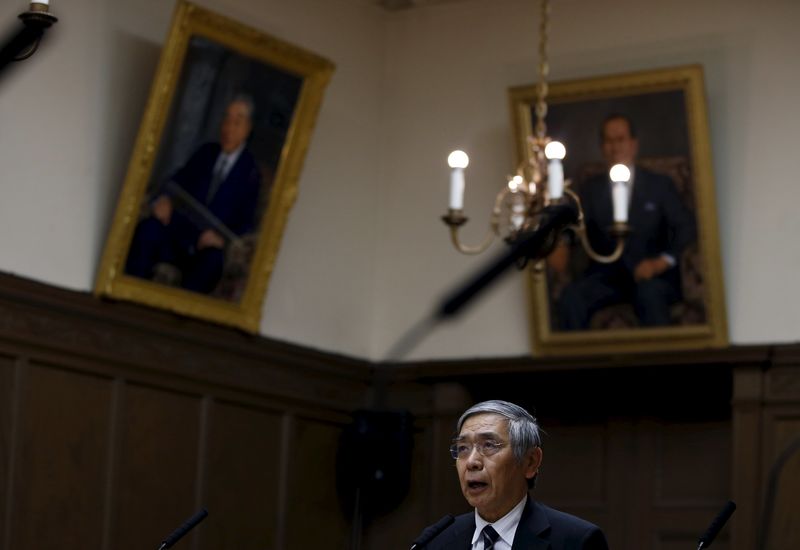By Leika Kihara
TOKYO (Reuters) - Bank of Japan Governor Haruhiko Kuroda on Monday blamed investors' "excessive" risk aversion for persistent market volatility, and defended the central bank's decision to adopt a negative interest rate policy in the face of questions about its effectiveness.
The BOJ chief also shrugged off criticism that the radical stimulus policy risked destabilising Japan's banking system by squeezing returns on lending, stressing that bank profits have been on the rise even during years of ultra-easy monetary policy.
"Bank revenues have been rising as corporate bankruptcies fell due to a recovering economy. Bank lending has been also on the rise," Kuroda told a parliament session.
"I'm convinced that such rises in bank lending would have a positive effect on Japan's economy," he added.
Japanese bank lending rose 2.3 percent in the year to January, marking the 52th straight month of increases.
Opposition lawmakers have summoned Kuroda to parliament almost daily to grill him on the BOJ's negative rate policy, which has pushed bond yields below zero but failed to boost Tokyo stocks or arrest yen rises as policy makers had hoped.
Japan's Nikkei average <.225> lost nearly 6 percent from levels before the BOJ's shock decision on Jan. 29, while the yen gained roughly 5 percent against the dollar.
Democratic Party lawmaker Katsumasa Suzuki told Kuroda in parliament that some retail shops are urging consumers to buy safes to "protect against negative rates," a sign the BOJ's policy is raising fears among households and companies that they may be penalised for keeping money at bank deposits.
Kuroda defended his stimulus policies as positive for households as mortgage rates are pushed down and economic growth gets a boost from a decline in real borrowing costs.
He said external factors, such as uncertainty on the outlook for U.S. monetary policy and investor concerns over Europe's banking sector, were also responsible for the recent market rout.
"I want to carefully watch how recent market volatility would affect Japan's economy and prices," he said.
The BOJ cut a benchmark interest rate below zero last month, stunning investors with another bold move to stimulate the economy as volatile markets threatened its efforts to sustainably end deflation.

The move is a blow to regional banks already hit by low returns on lending and weak corporate borrowing, and may add to pressure for them to consolidate or accept the advances of bigger rivals, analysts say.